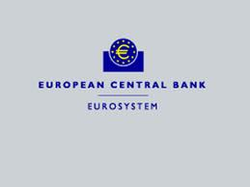The European Central Bank says on May 31, 2012, the need for a European unified banking supervision.

On 31 May, 2012 Mr Jörg Asmussen member of the Executive Board of the European Central Bank, said at a Conference behind closed doors in Frankfurt that the situation of Europe requires the establishment of an integrated supervisory banking in the euro area on the more systemic banks, which we can assess the number to 25. To do this, they should be supervised directly by a supranational regulatory authority and not by their national authority. Reuter was in favour of this statement. The European Central Bank spokesman confirmed the quote.
© thejournalofregulation
Europe is highly integrated with respect of the rules of competition, the European Commission with the power to take individual decisions (enforcement of anti-competitive practices and control of merger control).
She began to be built with respect to the regulation of financial markets, by regulations of the EU from January 2011 building European agencies which, for the moment, are organizations which are more like networks condensed of European regulators, because representatives of these sit on, more than autonomous regulators, even though they are hierarchically located at a supranational level.
What the European Central Bank considers necessary, is a genuine European supervision, with its own regulation-supervisory authority. It would own in two ways. First, this concern only the euro area. Indeed, the idea is that the Bank is inseparable of currency (and therefore of the States) and that thus the supervision Bank European integrated proposed is only related to the euro area.
No matter that the city is the first financial place, since the link would be thus institutionally cut between Bank and finance for the benefit of the relationship between Bank and currency. It measures from time to time how the institutional divisions referred to ideological conceptions, here the coupling relationship between bank relations, finance and currency.
Secondly, the idea is that the European banking supervision integrated relates that 25 banks, no doubt the "supersystemic" one, in any case those whose strength is a challenge for the monetary strength of the euro, through certainly the guarantee that States must make to these banks, and behind States a guarantee that the European Central Bank itself could eventually bring.
The essential is to hold that it is more to save the financial market but to save money. This shows how are States (because the currency is consubstantial, cf. the concept of "sovereign currency") which are at the heart of the new proposals, and not more financial markets. Practical and conceptual issues moved. As a result, institutions to put in place are not the same and have not the same subject. To the Banque centrale européene (BCE) - European Central Bank’s (ECB), the suitable institution is a European integrated banking supervisory authority; the subject is the systemic Bank for the euro. It has changed crisis. It’s necessary to change the institutions, even those who were in project.
This means that the countries that are built on the finance and not the currency, such as the United Kingdom, no more plays the first role, or even role at all, and that the countries that are built on the currency and relatively little on finance, then play a primary role. This is the case of the France and the Germany. Demonstrated as through institutional projects, politics and history are at work.

your comment